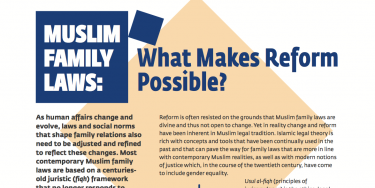The Asian Pacific Resource and Research Centre for Women (ARROW) along with their partners at the national and regional levels are working towards reaffirming women’s agency to claim sexual and reproductive health and rights. Towards this endeavor, ARROW is actively engaging in research, monitoring, knowledge management and advocacy at national, regional and international levels around the United Nations International Conference on Population and Development (ICPD) held in 1994. ICPD marked a significant milestone in the area of sexual and reproductive health and rights with its emphasis on the rights of individuals and empowerment of women.
At the same time ARROW has been examining the possibilities of using human rights conventions, covenants, treaties strategies to mainstream and integrate SRHR within these, so as to further affirm government commitments on SRHR at the national level. The Convention on the Elimination of All Forms of Discrimination against Women (CEDAW) is a source of international law and considered legally binding. CEDAW addresses all forms of discrimination against women including discrimination in relation to right to health and health services, and guarantees women the exercise and enjoyment of human rights and fundamental freedoms on a basis of equality with men. ARROW underscores the distinguished position of CEDAW convention, the General Recommendations and the Optional Protocol to CEDAW as playing a critical role in women sexual and reproductive health rights
Every day, between 10 and 12 women and girls living in Ireland travel to England for an abortion. The majority of the women are aged between 20 and 34. Their reasons for terminating their pregnancies vary; however, their reason for travelling is the same. They cannot access safe and legal abortion services in Ireland, as procuring an abortion there is a criminal offence except where the pregnancy poses a “real and substantial” risk to their life. Human rights bodies have repeatedly held that restrictive abortion laws, including those that exist in Ireland, violate women’s and girls’ rights to life, health, privacy, non-discrimination and freedom from torture and other ill-treatment. The withholding and denial of abortion-related information to women, as Ireland’s Regulation of Information Act requires, also violates fundamental human rights, including the rights to information and freedom of expression. The findings of this report reveal violations of these human rights and demonstrate that Ireland is not implementing its international obligations to respect, protect and fulfil these rights.
Download the full report from Amnesty International below.
This factsheet from The Advocates for Human Rights compiles the various regional legal and policy frameworks that mandate legislative action to address harmful practices. It categorizes frameworks by region for further utility.
This resource from The Advocates for Human Rights, compiles the various elements of international law that make up the legal framework for addressing “harmful practices”. It summarizes key legal documents, their most important contents, and their importance in the field of human rights.
This resource is a news item from April 21st 2015 from ADF-International which describes itself as an organization working for freedom of religion, but which is the global partner of Alliance Defending Freedom, an anti-choice and anti-LGBT group based in the United States. The item documents their view of the negotiations at the 2015 United National Commission on Population and Development (CPD). It highlights the anti-SHRH position that many UN Member States took during discussions, including the removal of abortion or sexual health initiatives from the proposal in the name of “cultural” or “religious” values.
On 27-28 October 2009, over 400 delegates, including parliamentarians and ministers from around 115 countries, met in Addis Ababa, Ethiopia, for the fourth International Parliamentarians’ Conference on the Implementation of the ICPD Programme of Action (IPCI/ICPD)
Participants unanimously adopted the Addis Ababa Statement of Commitment, in which they pledged to exercise their oversight responsibilities to break the silence around gender discrimination and to promote sexual and reproductive health and reproductive rights.

This brief from Musawah deals with the reform of Muslim family law.
As human affairs change and evolve, laws and social norms that shape family relations also need to be adjusted and refined to reflect these changes. Most contemporary Muslim family laws are based on a centuries-old juristic (fiqh) framework that no longer responds to contemporary Muslim realities. Law reform is one method for addressing social and economic changes and making our legal systems compatible with the actual needs of individuals and families today.
The brief includes
- The difference between shari’ah (total of religious values and principles that can guide Muslims’ lives) and fiqh (the process by which humans attempt to derive concrete legal rulings from Shari‘ah).
- The interpretation of Islamic concepts of ijtihad, ikhtilaf, darurah, maslahah, istihsan and istislah as open to the reform of Muslim family law.
- Examples of applying these concepts to reform current legal issues like unilateral divorce and wilayah (male guardianship in marriage).

